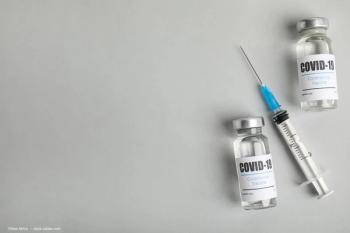
- Ophthalmology Times: September 1, 2020
- Volume 45
- Issue 14
Unproductive worry: Conquering fear during a pandemic
Do you find yourself engaging in unproductive worry? Heaven knows that ophthalmologists these days have a lot to ponder.
From time to time, perhaps you ruminate about things over which you may not have control—pandemics, economic recession and stock market volatility, wars, the current state of American politics, making payroll in your clinical practice when many ophthalmology practices have had to lay off many of their employees, declining physician reimbursement, maintenance of certification, or your children’s happiness.
Previously by Dr. McDonnell:
Dale Carnegie, an American writer and public speaker, noticed 80 years ago that many of the students in his self-improvement courses spent much of their time in unproductive, sometimes disabling, worry.
Carnegie developed courses in self-improvement, salesmanship, corporate training and public speaking.
He studied the problem and, using his students as test subjects, proposed and validated strategies to allow a person to overcome the tendency to waste time worrying.
His research formed the basis of a book, published in 1948, titled How to Stop Worrying and Start Living.
Carnegie offers a number of concrete suggestions for how to overcome worry:
1. Write down in great detail exactly what you are worried about.
Then write down a minimum of 3 options available to you to respond to that worry. Consider the pros and cons of each option and decide upon the most attractive way to proceed.
If you cannot decide between 2 options, arbitrarily choose one and begin implementing it. If after a few days or weeks that strategy seems to be working, continue.
But if not, move on to the second-best option. According to Carnegie’s research, deciding upon a course of action and acting goes a long way toward converting the seemingly impotent worrier into an empowered person of action.
Related:
2. Write down the answer to “What is the worst thing that could happen?”
This might be sobering to contemplate, but it certainly forces one to squarely confront the worst-case scenario. Then list a bunch of items that, if you accomplished them, would make the nightmare scenario less bad.
Let’s imagine, for example, that you worry about contracting coronavirus disease 2019 from a patient and, after a long stay in an ICU, becoming disabled and no longer capable of financially providing for yourself and your family.
On your list of to-do items, you might therefore include obtaining or confirming that you have good disability insurance, a power of attorney for health care allowing a person you trust to make decisions about your health if you are unable to do so, a good investment portfolio, etc.
Carnegie found that as his students checked off items on the list, they were transformed from unproductive worriers into persons who believed that they were having a positive impact on their futures. Even if the person checks only 1 item off, they have improved upon the worst-case scenario.
Related:
3. Do the best you can today, and let tomorrow take care of itself.
Generals in wars that may last for years are able to sleep at night if they know that today they did everything within their power to give their best people the best equipment and best action plans. That was all that a good general could do. And tomorrow would be another day, in which the general would do the same.
If we ophthalmologists end each day knowing that we did the best we could that day for our patients, our colleagues, our families, and others, and that tomorrow we will do the same, unproductive and disabling worry will be kept at bay. Pandemic or not.
Articles in this issue
over 5 years ago
Improve patient comfort with intravitreal injectionsover 5 years ago
Stem cells for dry AMD with GA show promise in early studyover 5 years ago
Ophthalmology taking the treatment conversation onlineover 5 years ago
Astigmatism management software proving to be accurate, preciseover 5 years ago
Examining ocular allergy, quality of lifeover 5 years ago
Improving surgical safety, efficiency, and outcomes for patientsover 5 years ago
IOL offering treatment options for ophthalmologistsNewsletter
Don’t miss out—get Ophthalmology Times updates on the latest clinical advancements and expert interviews, straight to your inbox.





























